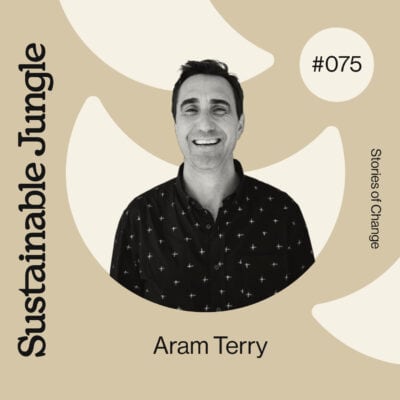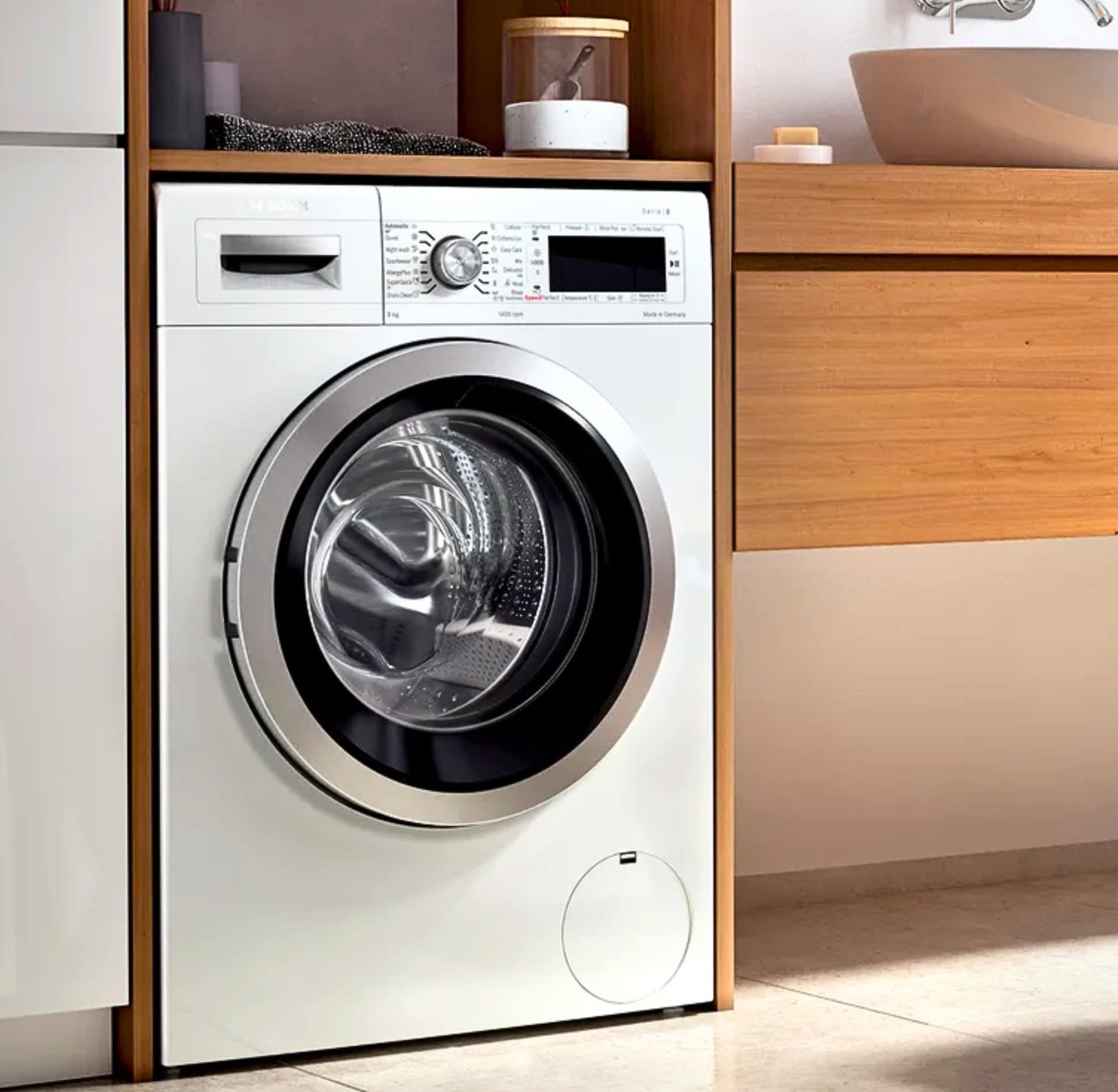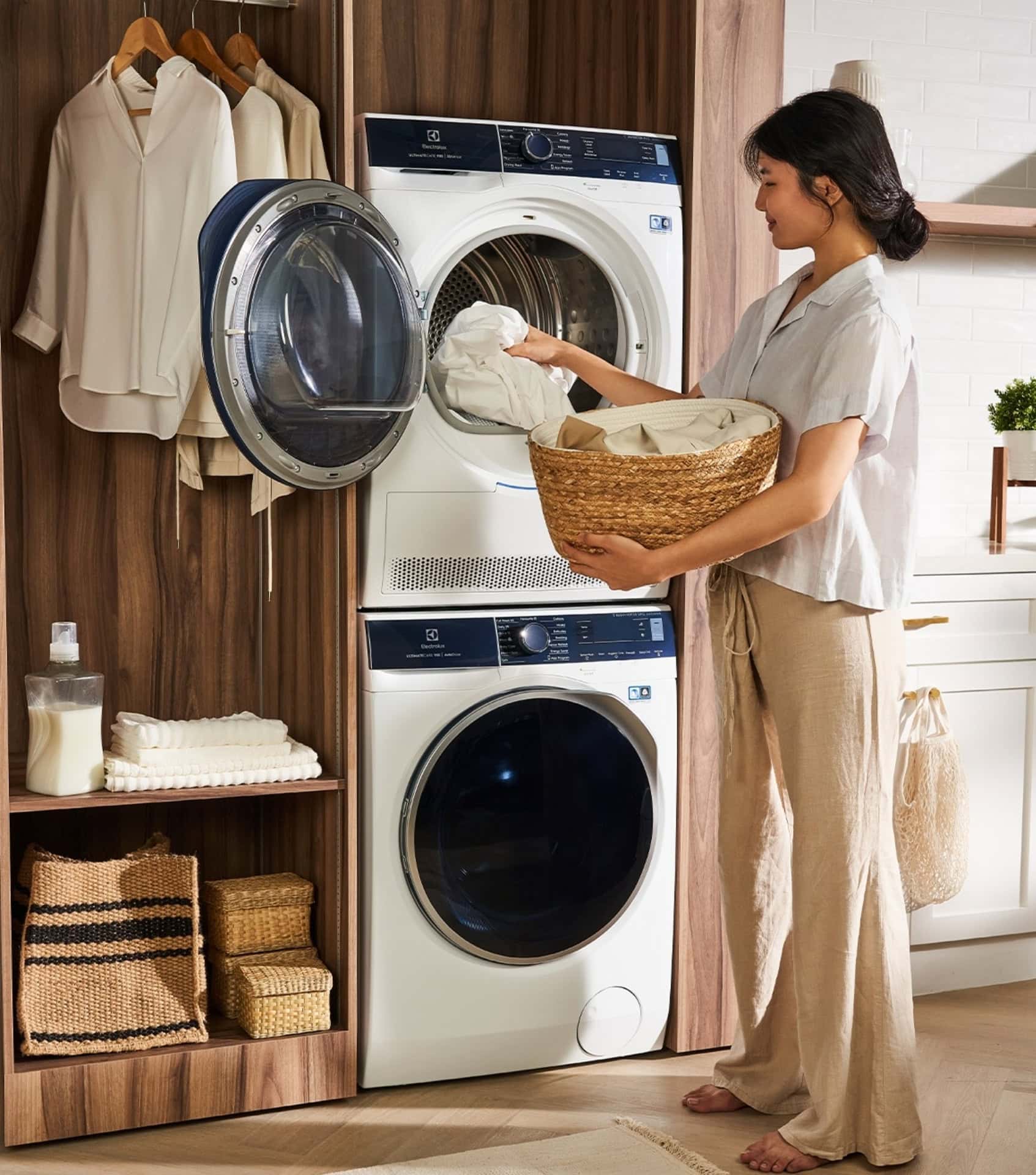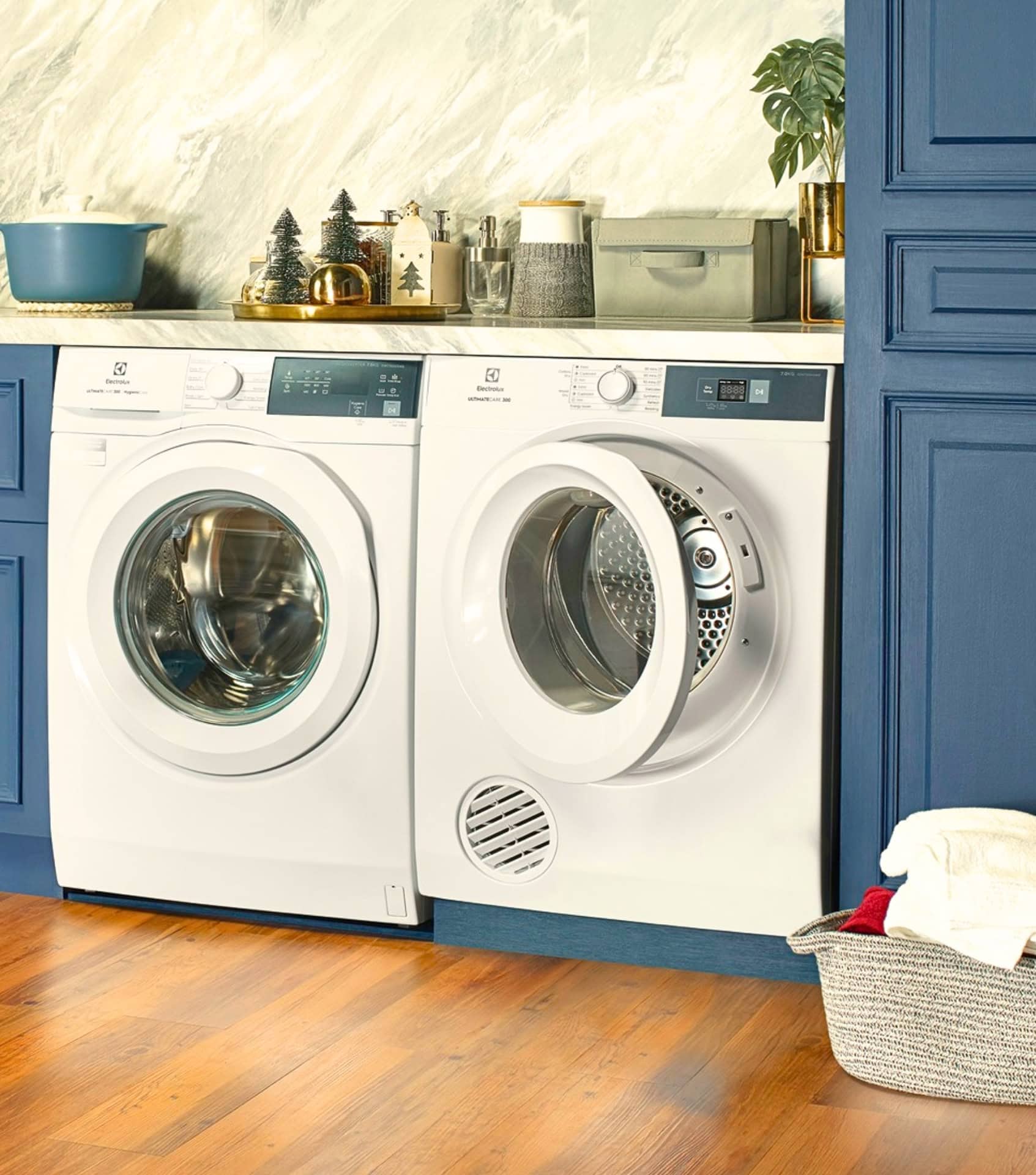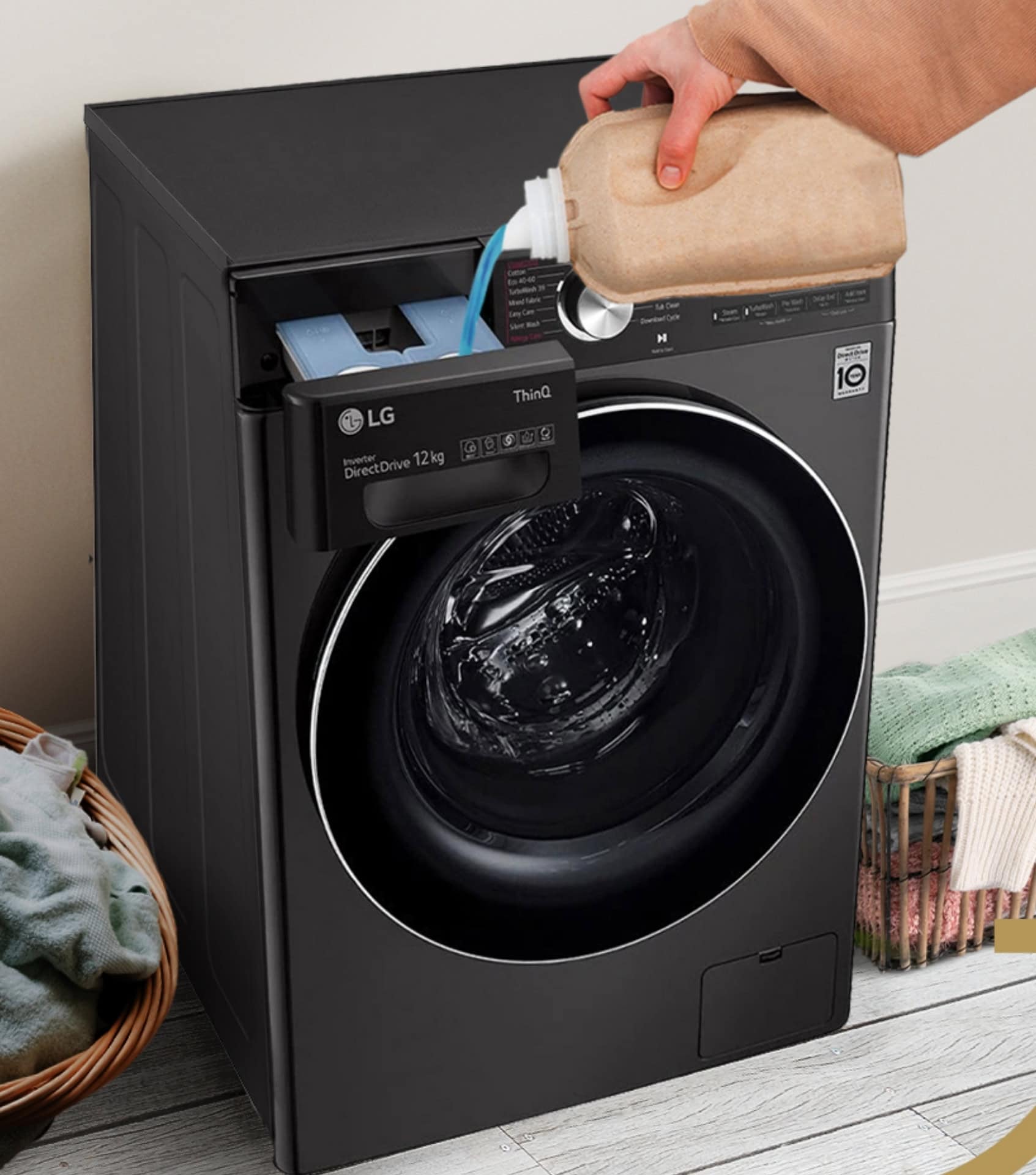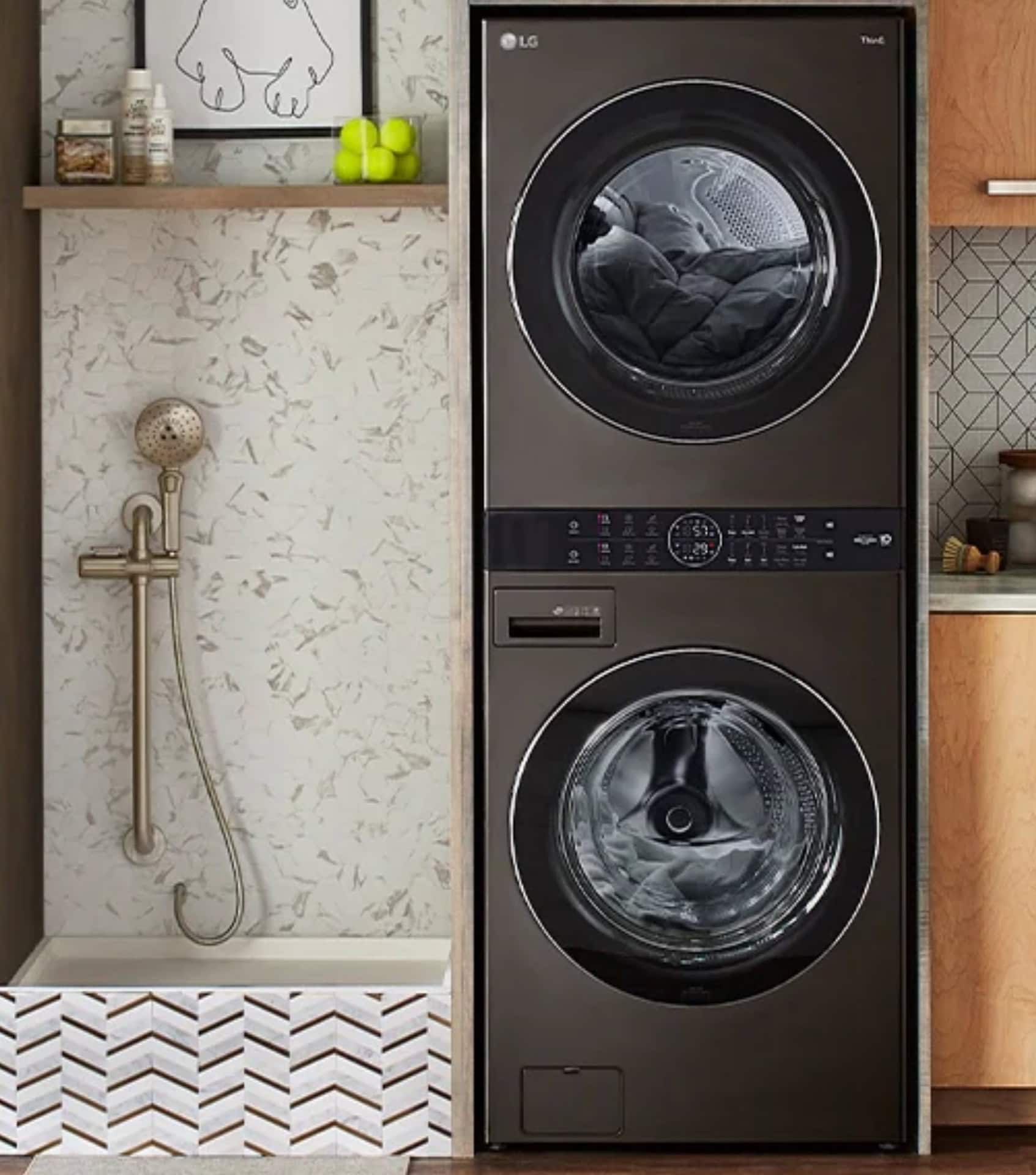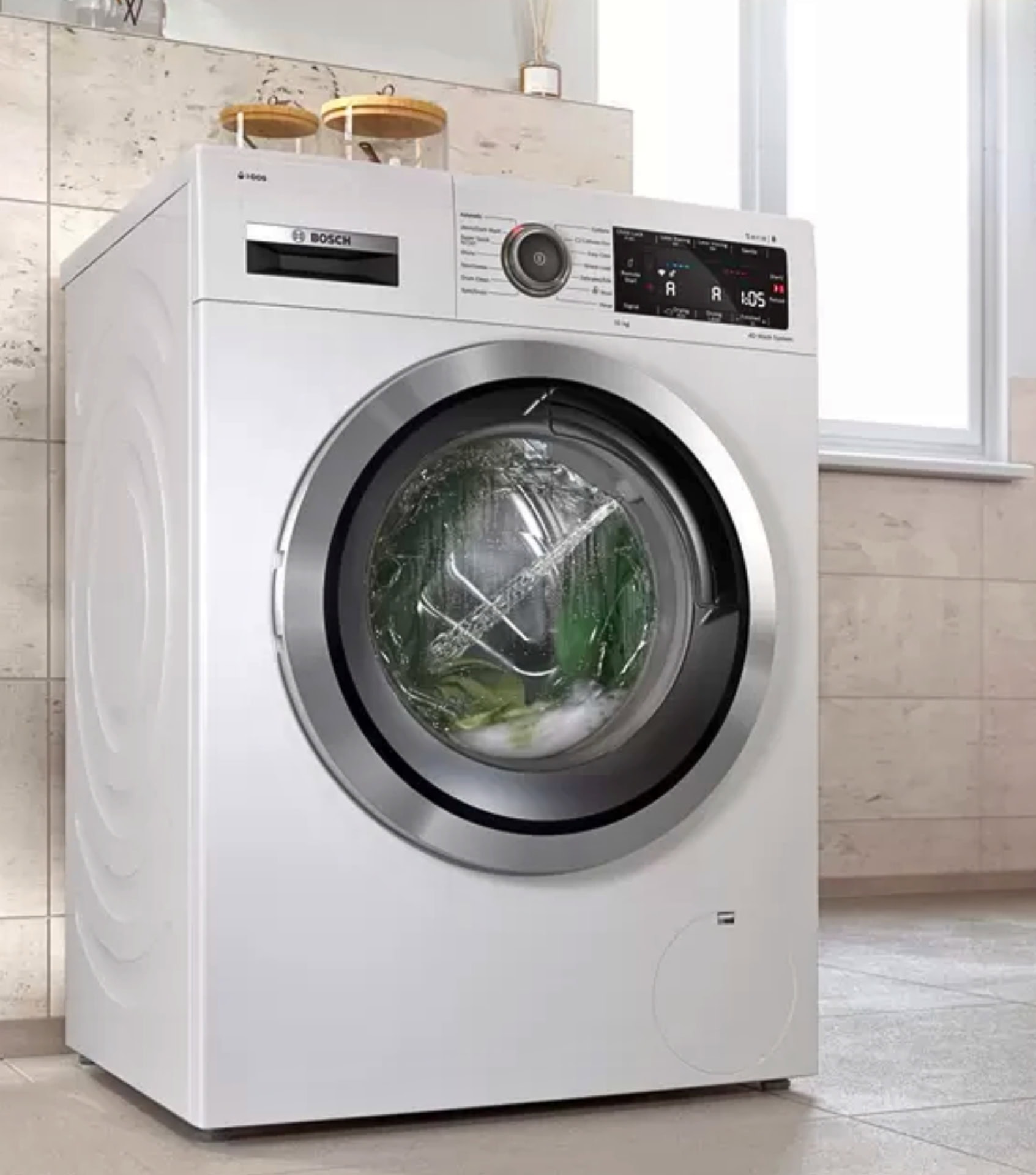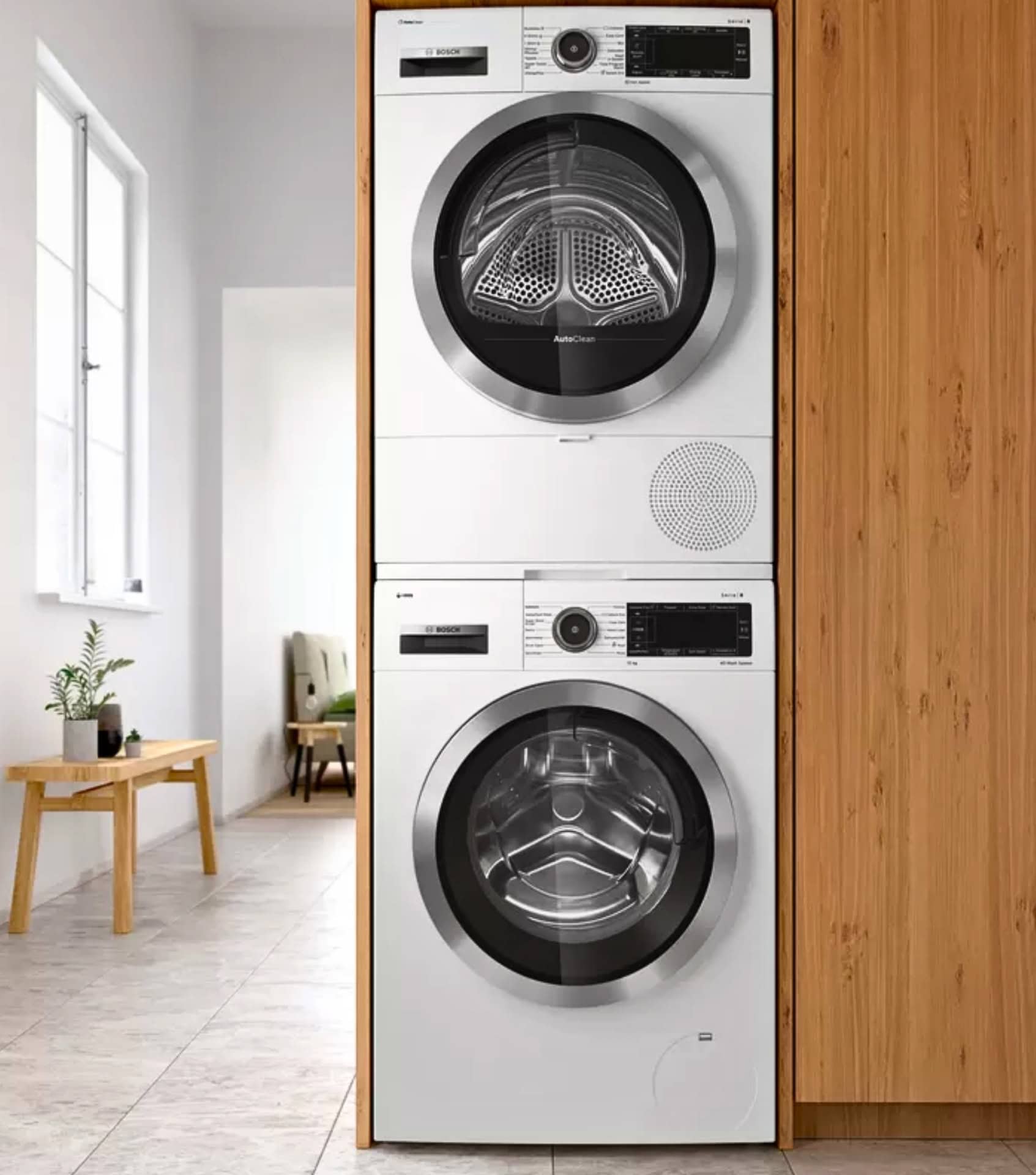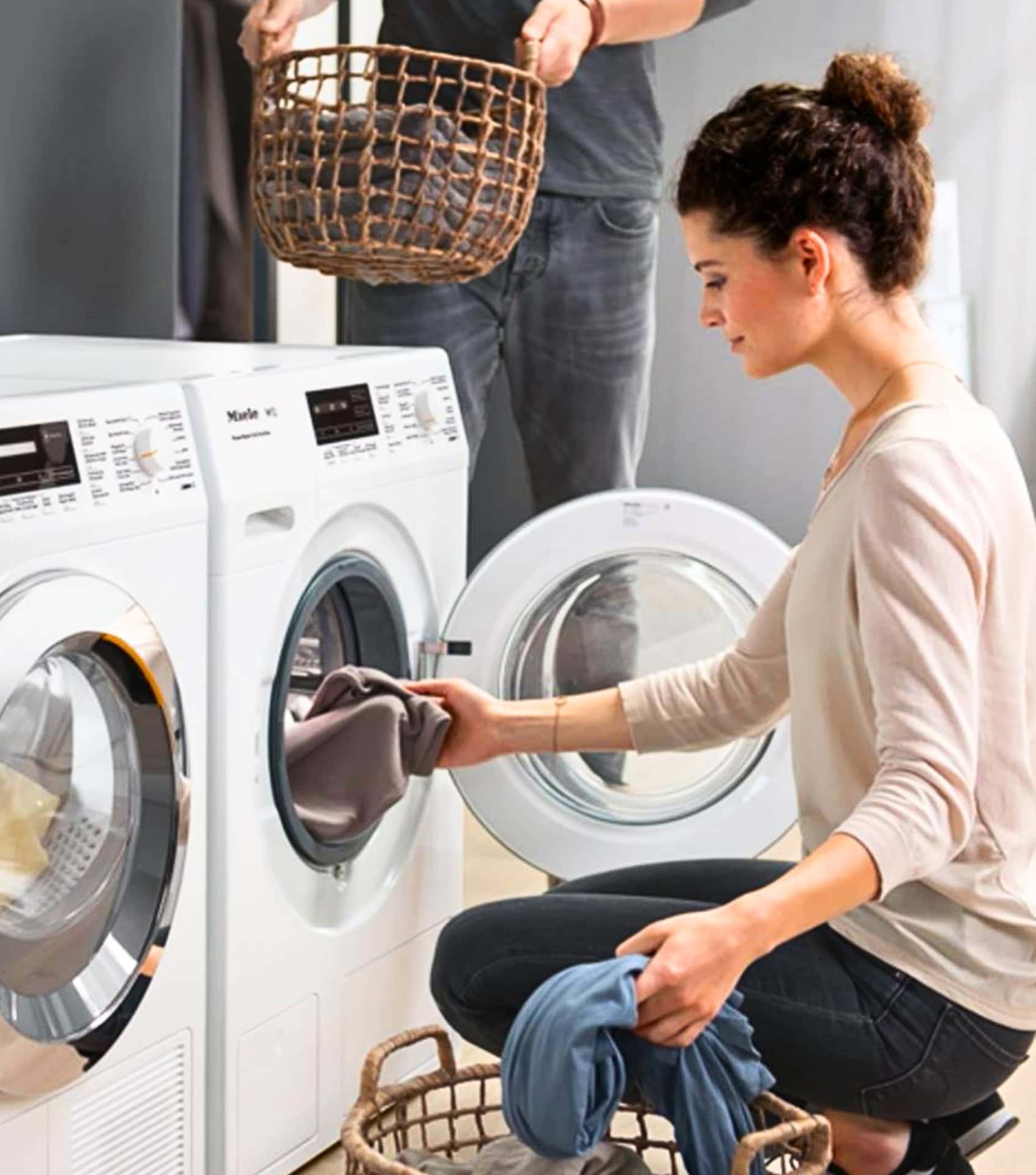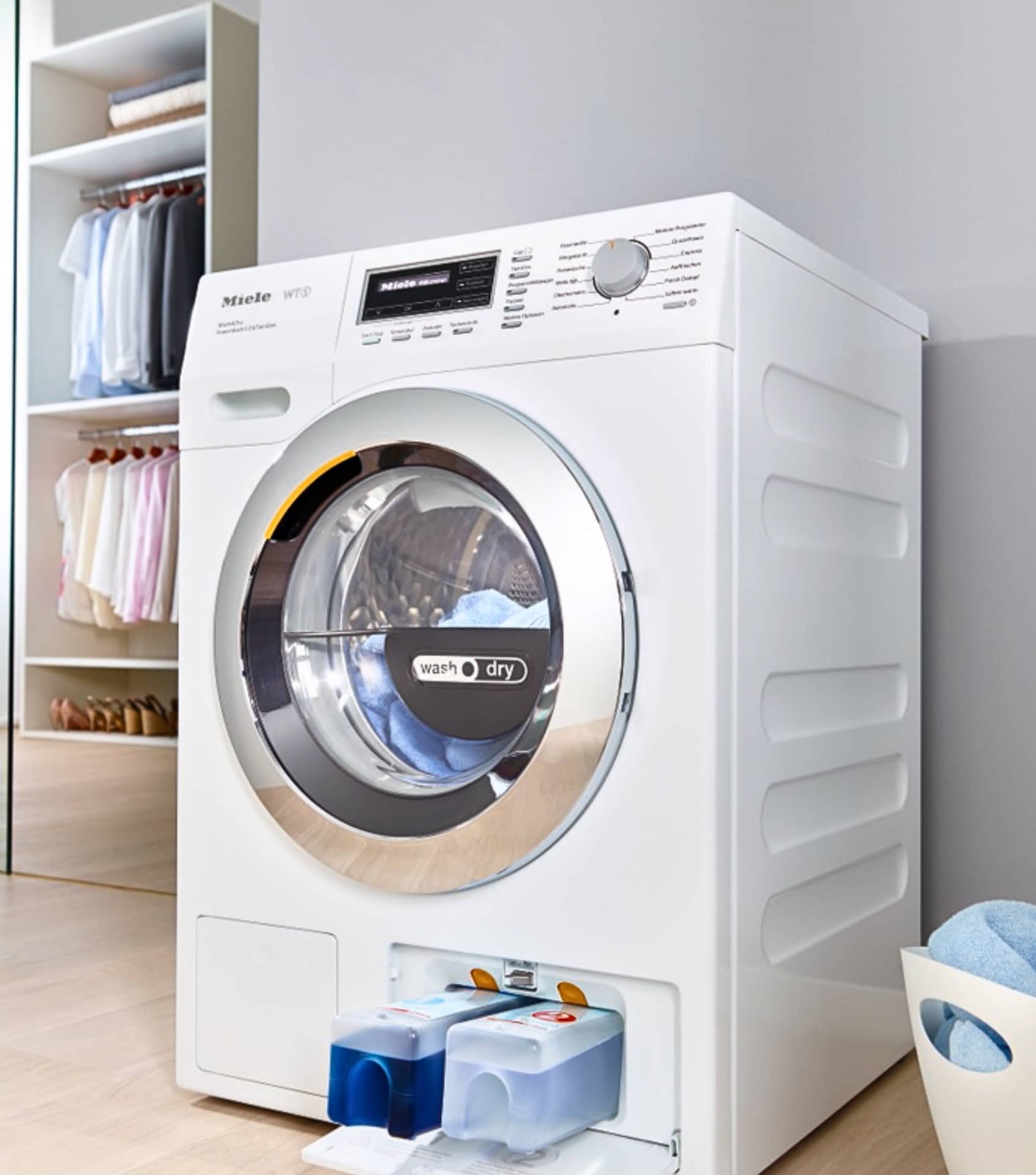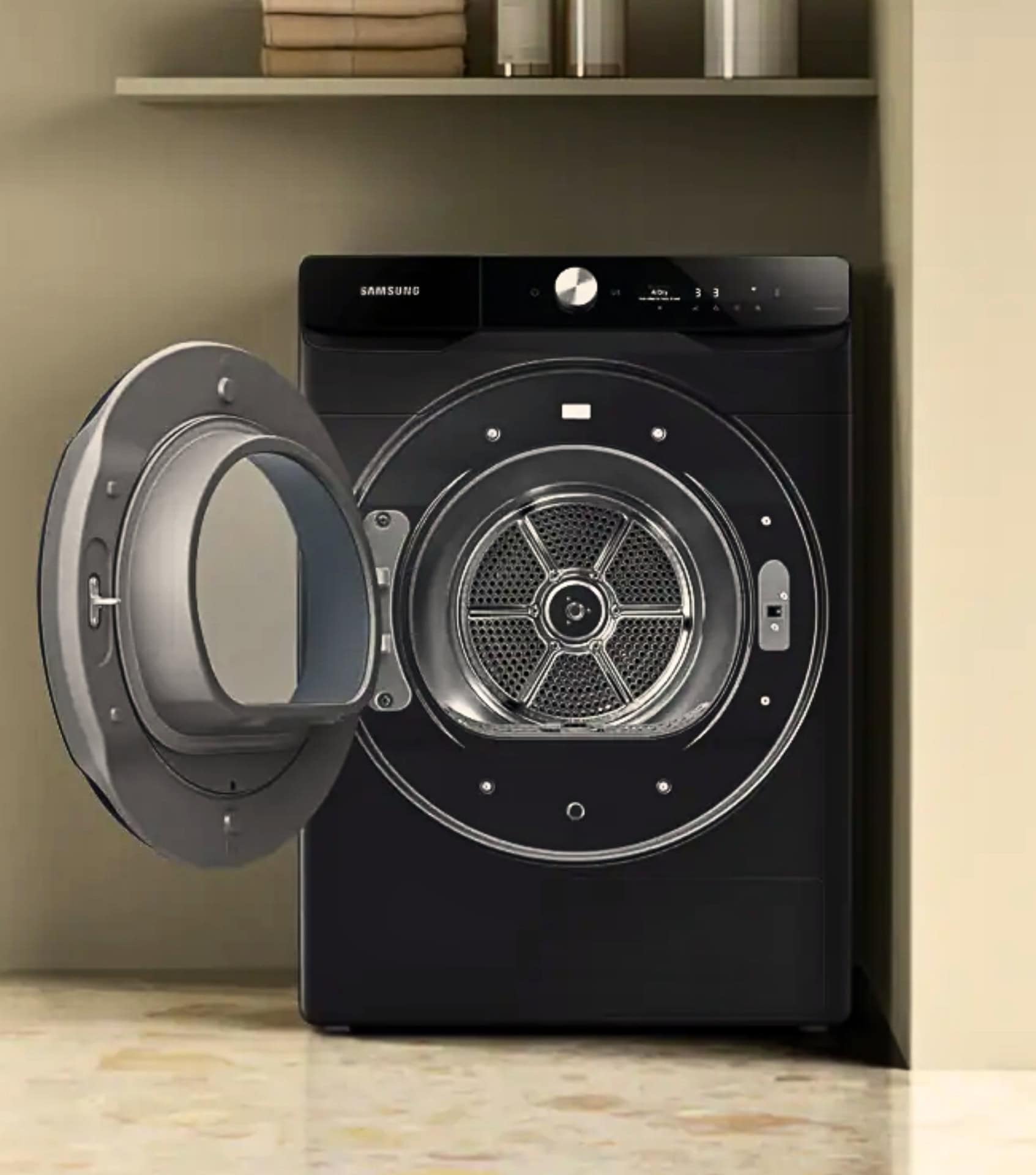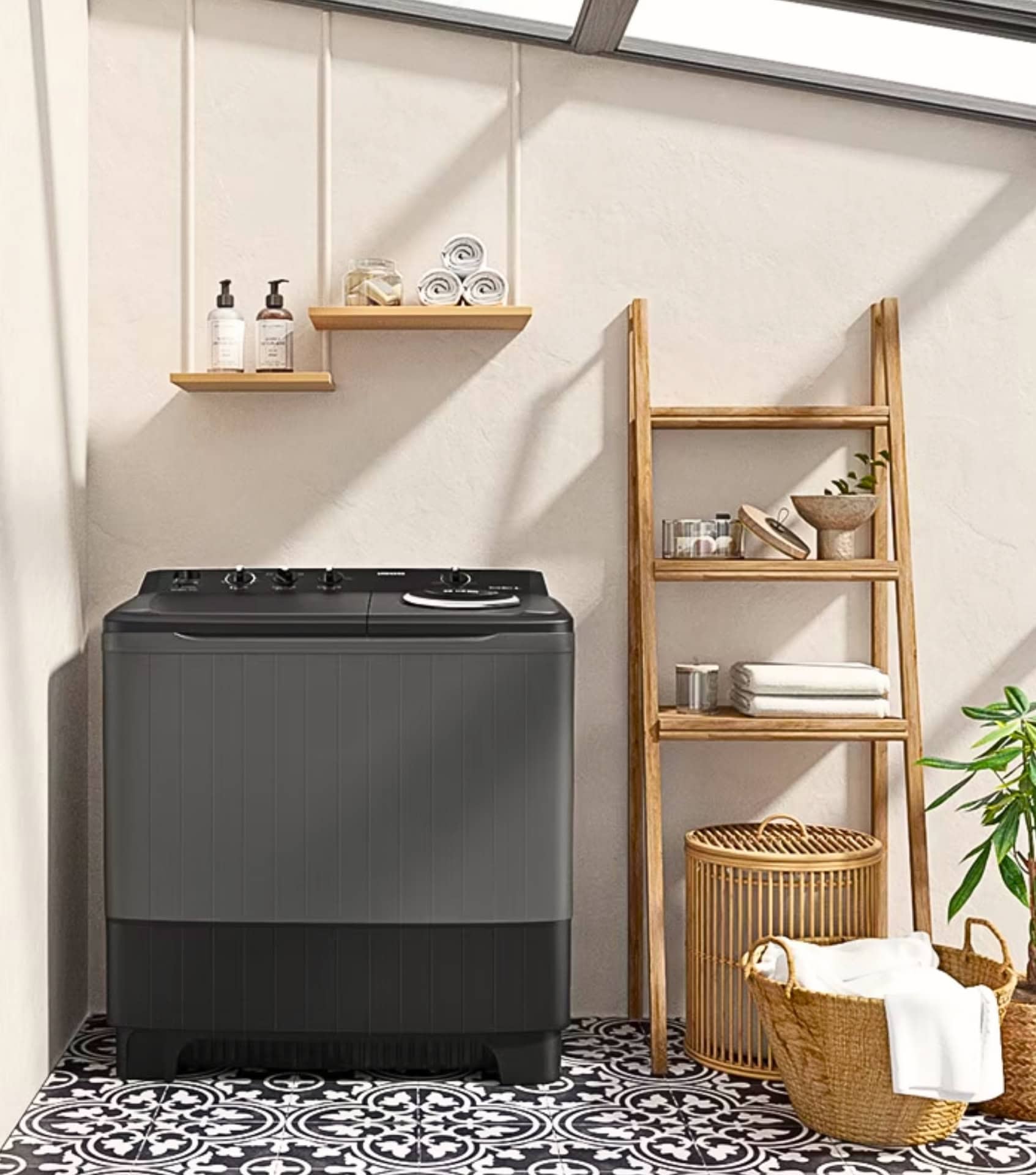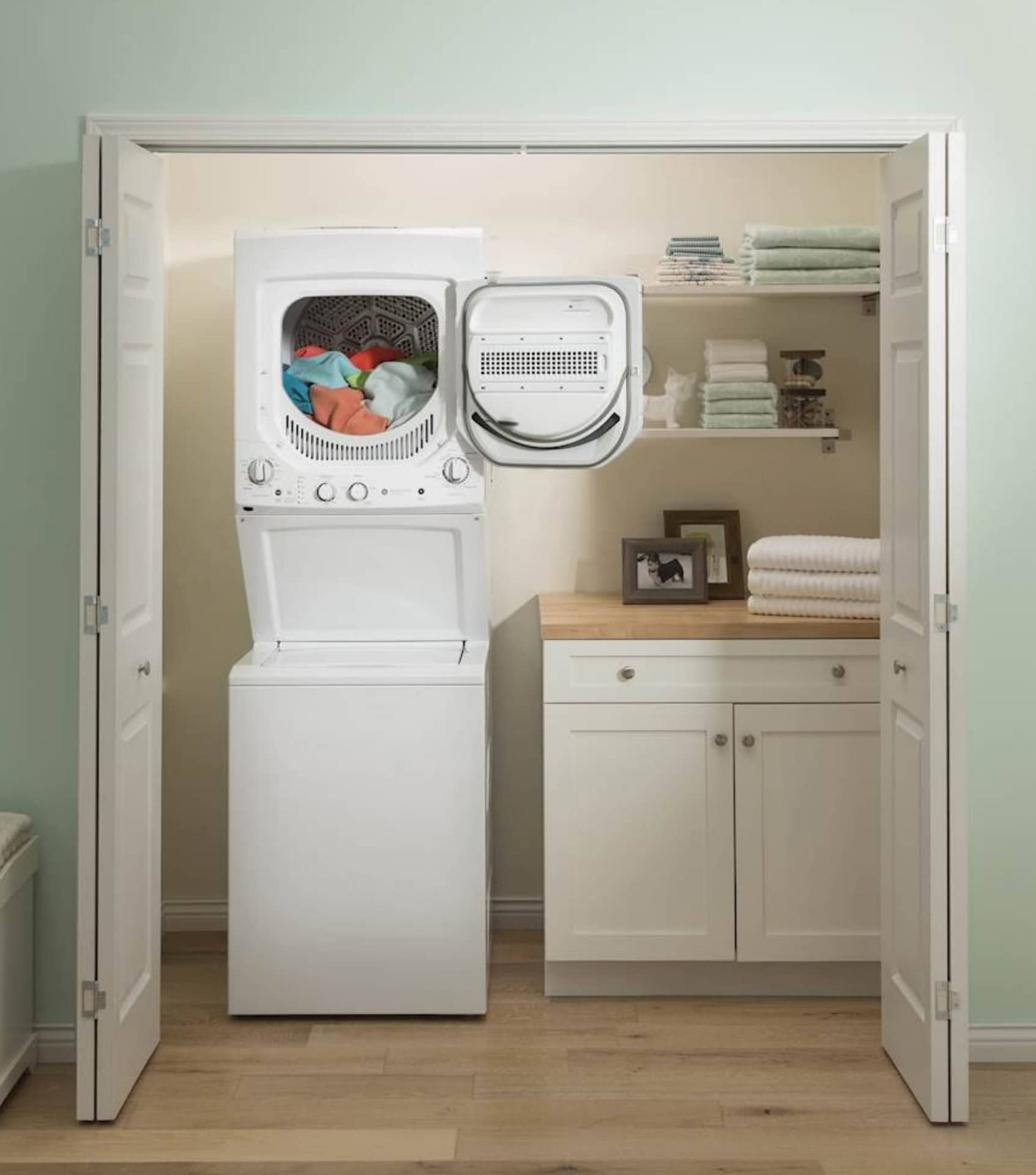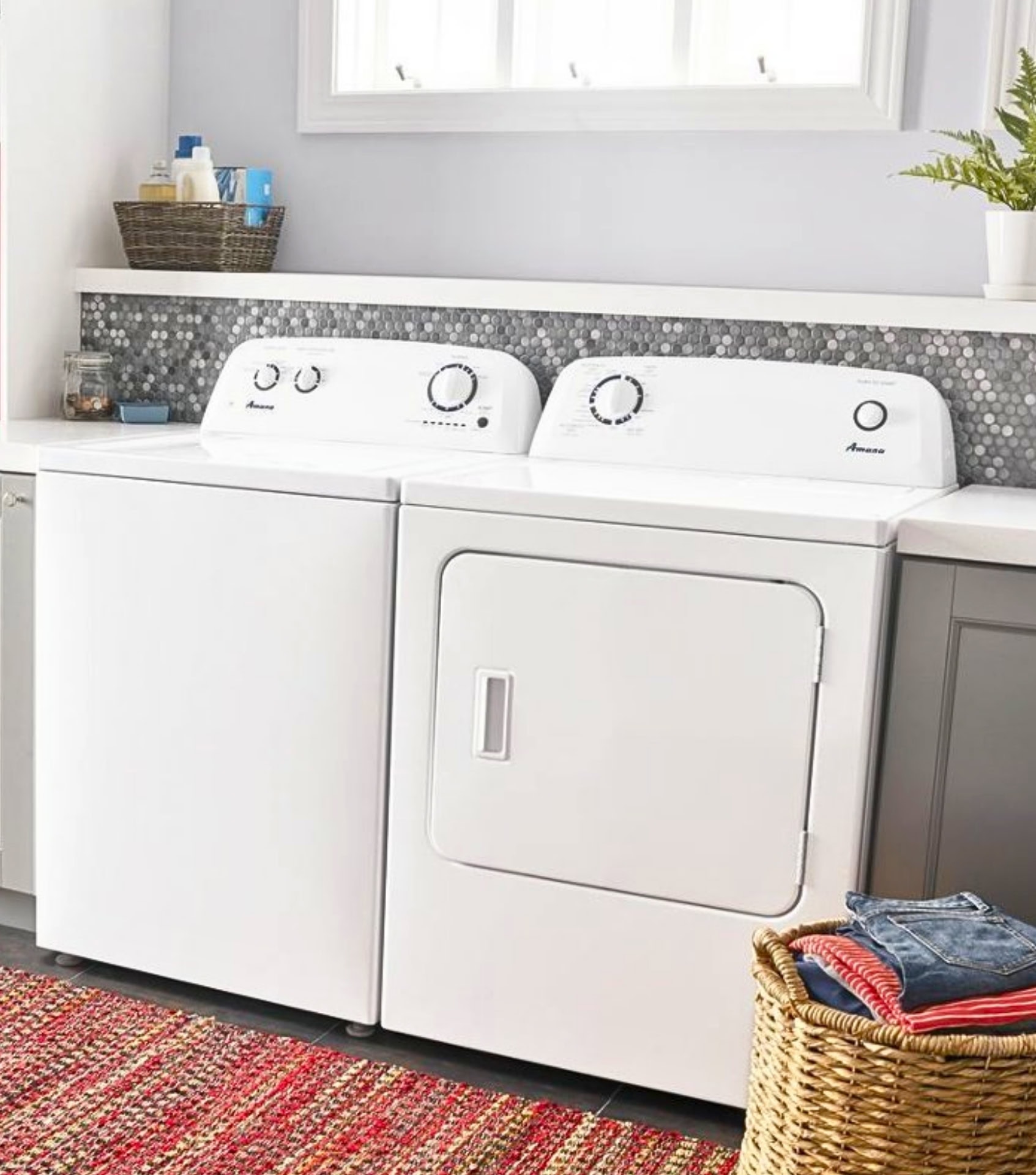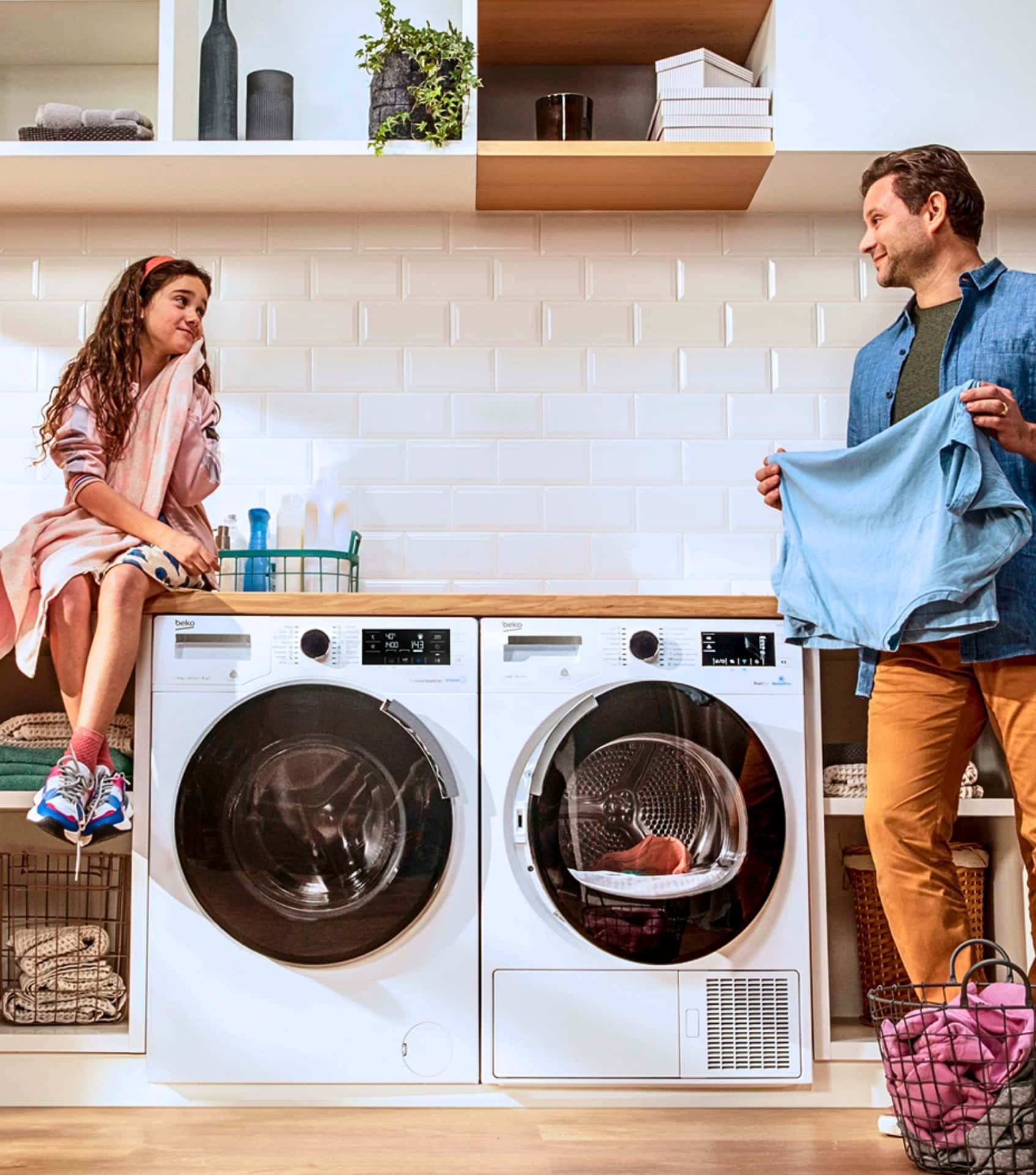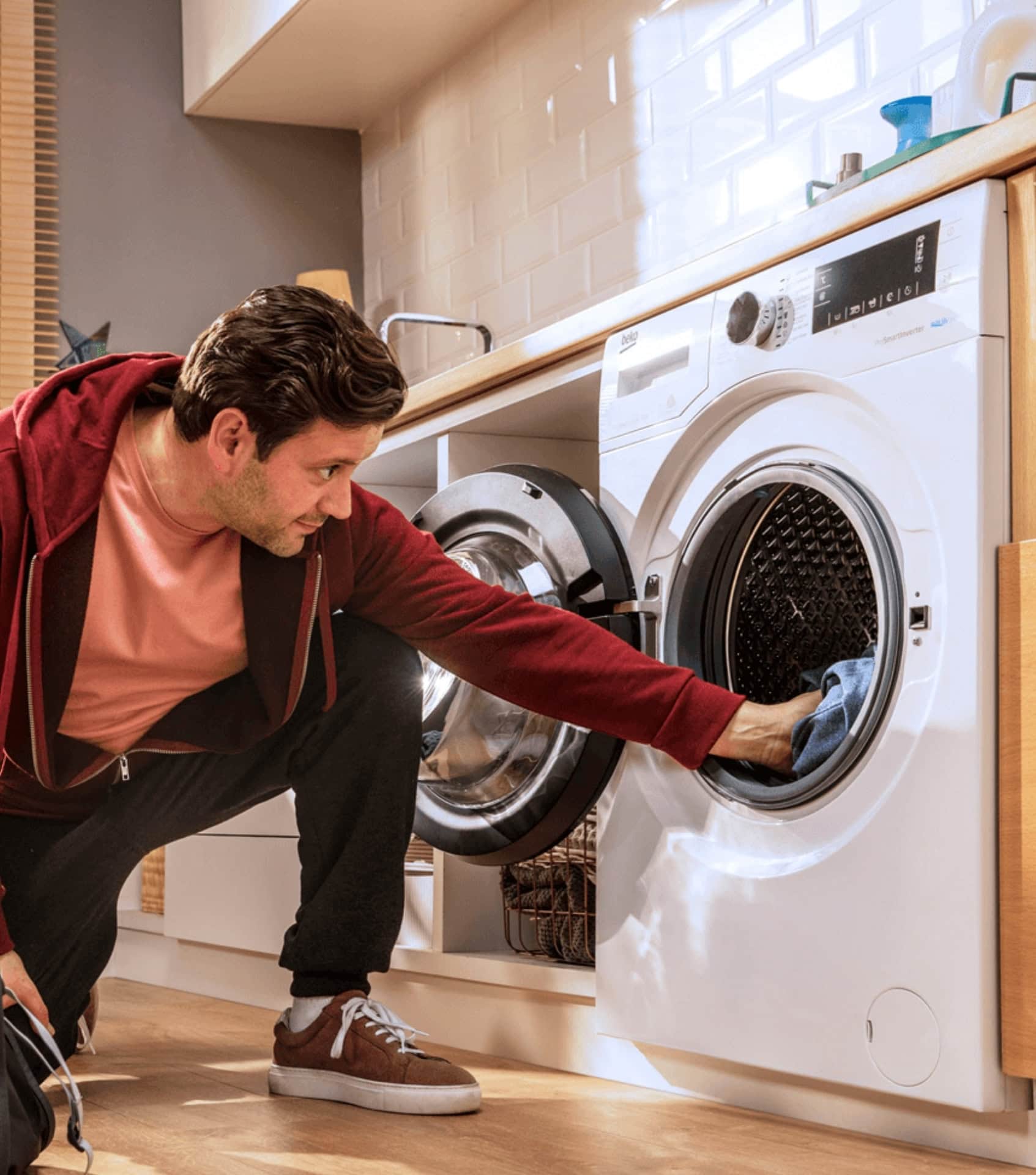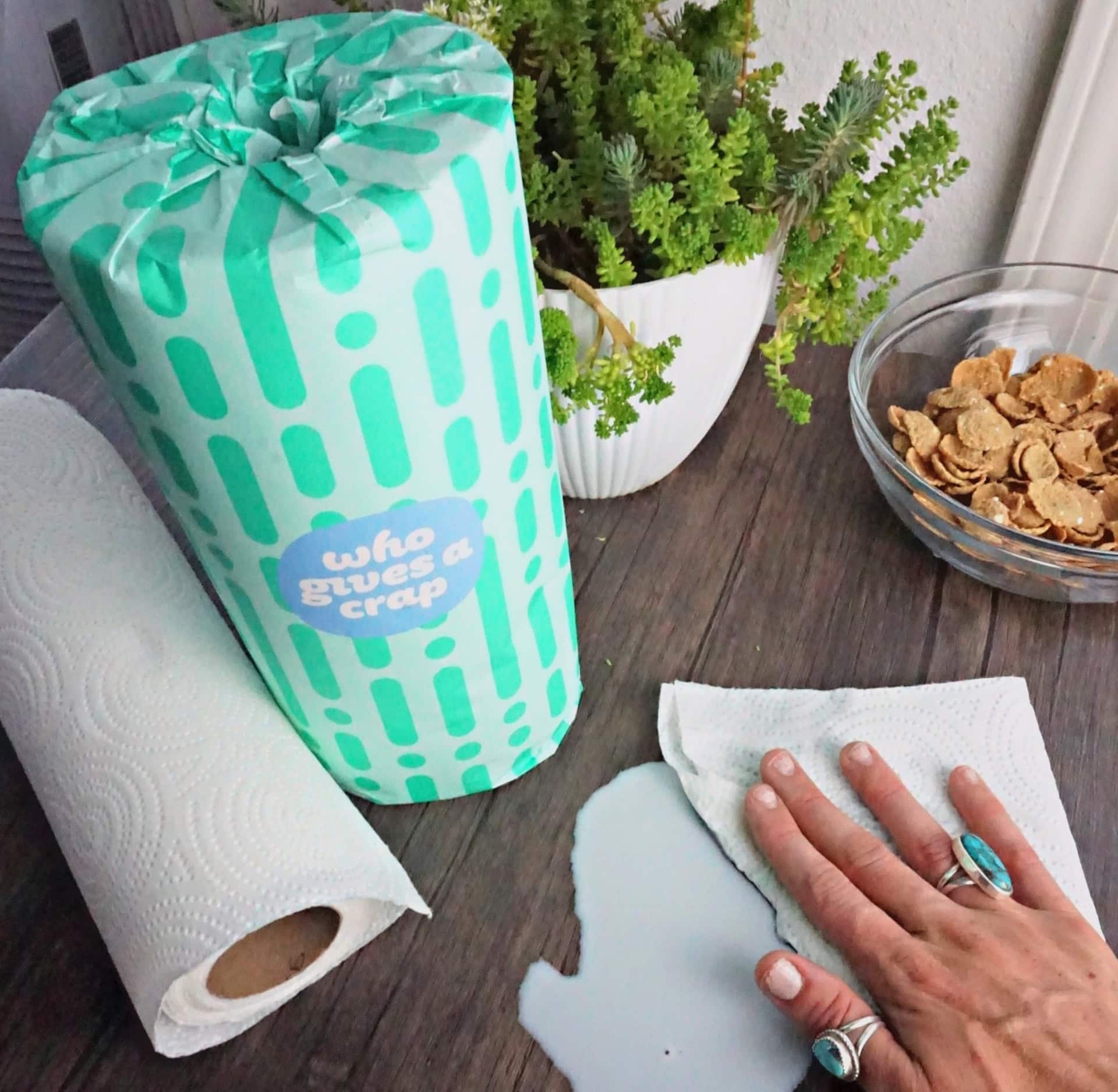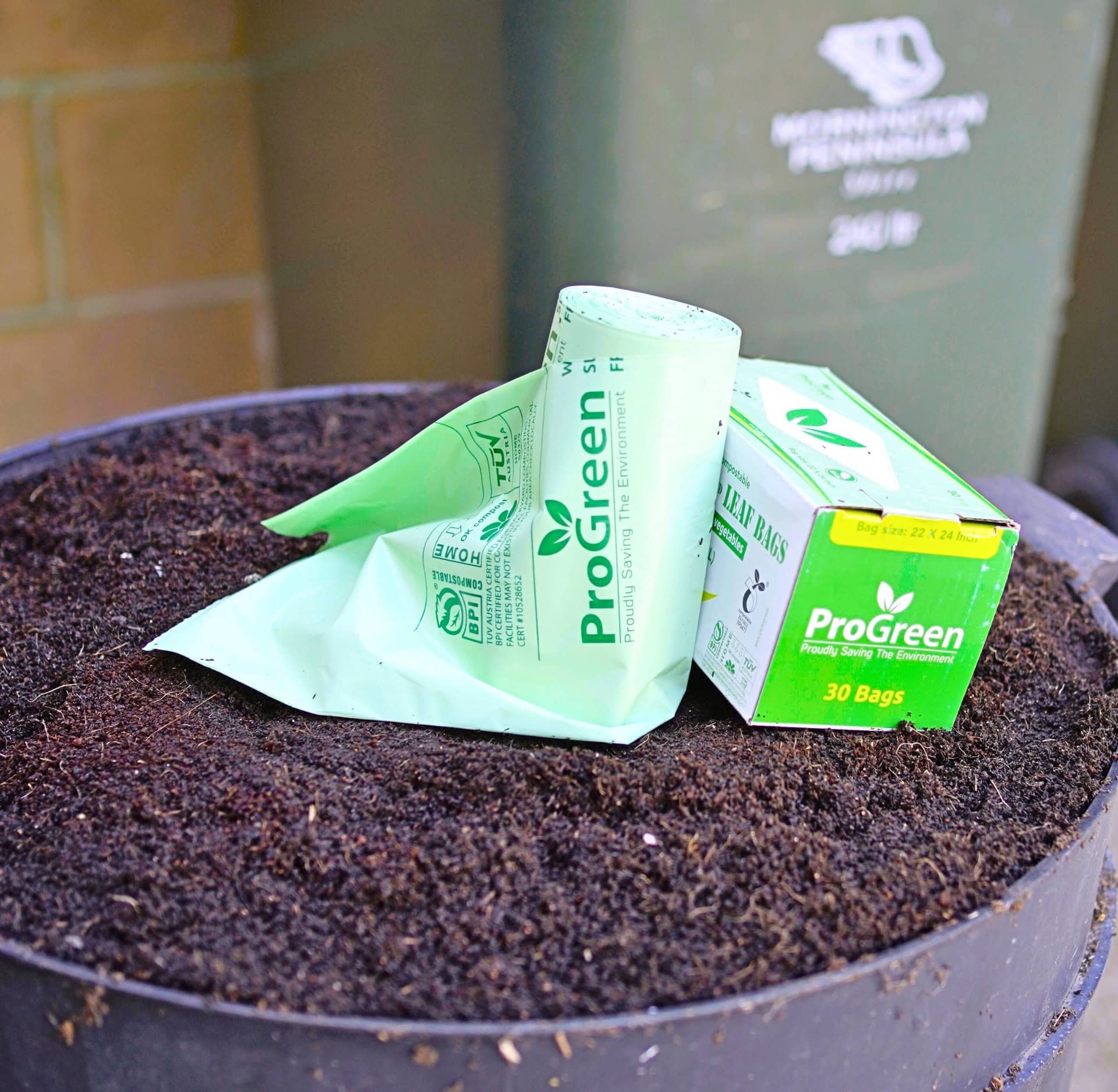Washers are far from low-impact. They’re made of numerous components and materials that collectively have a large environmental footprint. Even if we load them up with only natural laundry detergents.
But they’re a modern-day home essential. Life without a good old washing machine is almost impossible to imagine.
But get a load of this: you can do your next load of laundry in a more eco-friendly washing machine.
Yes, there’s a lot of emphasis on energy efficiency and as a result, many washing machines have made progress toward becoming more sustainable in recent years, but overall, the tech industry still has a long way to go. Only a few washing machine brands have taken it further.
Enter: the next generation of sustainable washing machines. And that’s what we’re curating here. Those brands that are pushing the boundaries by using more responsible materials, water efficiency and green business practices.
In the coming months, we’ll respin through this article in light of our new Brand Rating System, examining brands across 22 criteria including chemical use, climate impact, and product circularity. To learn more, take a spin through the whole system here.
We independently research all featured brands and we ask them to confirm their claims. In many cases we personally review recommended products. This post contains affiliate links which means we may earn a commission if you buy something. Learn more here.
The Top Eco Washing Machines For The Greenest Laundry Day
Beko pushes the envelope by using recycled materials in their environmentally friendly washing machines that filter out microplastics.
Helping consumers reduce their carbon footprint at home, industry innovator Electrolux has patented a gentler, low water washing machine that helps clothes last longer and creates less waste.
Index: Best Eco-Friendly Washing Machines
- Electrolux Jump to brand
- LG Jump to brand
- Bosch Jump to brand
- Miele Jump to brand
- Samsung Jump to brand
- Best Buy Jump to brand
- Beko Jump to brand
Electrolux
Price Range: $938–$1,549
Electrolux is a Swedish multinational manufacturer of home appliances, second only to Whirlpool in terms of the number of units sold. Electrolux sells its washing machines and other appliances under a variety of brand names including Electrolux ICON, Frigidaire, Philco, Tricity Bendix, AEG, and Zanussi.
Whether you want a water saving washing machine, top-loading machine you can control from your smartphone, or a machine with an efficient sanitization system for those who wash cloth nappies, Electrolux makes it.
Most of their washers are equipped with all the bells and whistles, like express wash settings, stain treatment, and stream treatment—perfect for those looking for dryer sheet alternatives. A few are certified in compliance with NSF allergen reduction Protocol P351.
Patented Core Drum technology provides significantly gentler fabric care, reduces wear and tear on garments, and increases the lifespan of your clothes.
Electrolux’s Ethical & Sustainability Practices
Recognized as an industry leader in the Household Durables category in the Dow Jones Sustainability Index, Electrolux was awarded an A score for its actions on Climate and Water, as well as a Supplier Engagement Leader by the non-profit CDP.
You can read their sustainability reports by year. Their latest one provides a detailed view of their “For the Better 2030” sustainability framework. In 2022, they achieved an 8% reduction in total CO2 emissions and water usage in water-risk areas, and increased use of recycled plastic by 25%
The brand’s most energy and water-efficient products account for 19% of total units sold, with plans to grow this in coming years. All components and materials used are ROHS-free and comply with REACH standards. Its three largest manufacturing sites which cover two-thirds of production are already ISO 50001 certified but they want to add more.
Part of Electrolux’s commitment to a diverse and inclusive workplace, there is zero tolerance for bullying and harassment. Suppliers and facilities must adhere to policies in accordance with ILO conventions and OECD guidelines.
LG
Price Range: $697–$1,800
Most of us know who LG are. They produce a wide range of appliances including vacuums, air conditioners, speakers, TVs, dishwashers, and energy-efficient washers and dryers for the home.
They focus on high efficiency top and front loaders. Between ENERGY STAR certification, TurboWash3D™ Technology (which provides an equally effective clean in less time), and SmartThinQ Wi-Fi connectivity to control your machine remotely, they want to make laundry as easy and energy-saving as possible.
All new washers are built with a NeveRust Stainless Steel Drum to reduce maintenance and increase machine functionality.
LG’s Ethical & Sustainability Practices
LG’s sustainability commitment is based on the ideology of “People-oriented Management” and “Creating Value for Customers.”
In 2018, LG was named Industry Leader by the Dow Jones Sustainability Indices (DJSI), the first world index to track leading global companies based on analysis of environmental, social, and governance practices. And in 2021, the brand was named “2021 Eco-Leader” for championing sustainability and carbon reduction.
LG has a Zero Carbon 2030 initiative. So far, it has reduced greenhouse emissions from US operations by 50% by using over 80% renewable energy. The goal is 100% by 2050. They also plan to achieve a 95% recycling rate of waste from production and ISO 45001 certification.
They have various social empowerment projects globally, like the LG-KOICA Hope TVET College that educates young people in Ethiopia or the Ambassador Program that helps global communities solve community problems.
Bosch
Price Range: $329–$3,896
Bosch has been a leader in the production of home appliances for more than a century—with an increased focus on eco-friendly appliances in the last decade. That includes energy-saving eco-friendly washers and driers. Tested and quality controlled to the highest industry standards, these low-water and low-energy washing machines are ENERGY STAR certified.
Bosch’s Ethical & Sustainability Practices
As a pioneer in climate action, Bosch and its hundreds of worldwide company locations have been climate neutral since 2020. 89% of the electricity the company consumes is green. Any remaining carbon emissions are offset using carbon credits, which, in 2021 amounted to an offset of 0.9 million metric tons. The brand’s ultimate aim is to lower Scope 3 CO2 emissions by 15% by 2030.
Bosch also aims to reduce absolute water withdrawal at company locations where water is scarce by 25% by 2025.
The brand is further reducing its ecological footprint by championing the circular economy principle. It continues to work on extending product life cycles and reusing components and materials from old appliances.
They’ve provided support to nonprofit organizations and teachers in North America for the past ten years via The Bosch Community Fund, with focus on the enrichment of STEM education and the advancement of environmental sustainability initiatives.
Miele
Price Range: $1,499–$11,085
Family-owned Miele has built its business on the durability of its products. Take their high-efficiency washing machines, which are tested and designed for 20 years of normal use.
Miele reports reducing energy consumption by as much as 72% for some of its low waste washers. Plus, you’ll only find a front load washer because they have the best water efficiency. Whether you’re shopping for washers only or for an eco washer and dryer set, Miele’s will help you conserve energy at home and save money on your energy and water bills.
Miele’s Ethical & Sustainability Practices
“Immer Besser” is the company slogan for its sustainability goals, which it’s tackling by addressing the problems throughout the life cycle of all products. The ultimate aim is to make products and services 100% carbon-neutral by 2050 at the latest.
The creation of a circular value chain is another goal. This includes net-zero waste for all materials used in appliances, which will re-enter the manufacturing loop when their lifecycle ends. 100% of metals used in some of their appliances can already be recycled.
Miele works with countless partners on projects tackling the climate crisis—like the (Minimal Input, Maximum Output (MIMO) project, which uses heat generated from appliances to warm or cool homes.
Manufacturing partners are all SA8000-certified as using no child/forced labor or discrimination and paying wages that match the local cost of living.
Samsung
Price Range: $545–$1,435
One of the most recognizable names in technology and home appliances, Samsung is a South Korean multinational electronics company that’s more than five decades old. In recent years, the brand has focused on producing more reponsible products, such as its range of green washing machines. Those that are ENERGY STAR rated actually exceed energy efficiency standards.
The Bespoke line of eco washers have the option of monitoring and controlling smart appliances remotely through a Wi-Fi connected app. Many are also equipped with Samsung’s Smart Care feature, which allows you to run a diagnostic check to accurately fix any problems that arise, helping consumers keep their appliances in working condition for longer.
Samsung’s Ethical & Sustainability Practices
Samsung’s goal is to reach net-zero carbon emissions and indirect emissions by 2050. In 2020, the company achieved its goal of 100% renewable energy for worksites in the US, China, and Europe. They’re now shifting focus to accomplishing this in other regions, including South Korea.
Samsung has replaced plastic and shrink wrap with packaging made of renewable biomaterials, and all paper suppliers for their packaging and manuals are required to have FSC sustainable forestry certification.
In 55 countries, Samsung operates waste collection and recycling programs, with plans to expand its closed-loop recycling system to recover and reuse greater quantities of copper, iron, and plastics from e-waste. As is, they have numerous product recycling programs in place.
Samsung’s labor policies include the prohibition of forced labor, prohibition of child labor, employment of the elderly, working hours, wages, prohibition of discrimination, and freedom of association.
Best Buy
Price Range: Varies
The best eco-friendly washer and dryer set is undoubtedly one you can save from the landfill. That’s why you should consider Best Buy Refurbished before opting to buy new.
Their huge range of pre-owned or open box ethical electronics includes everything from personal electronics (cell phones and computers) to major home appliances from a wide variety of brands.
If you’re nervous about the prospect of buying used appliances, know that Best Buy fully repairs (if needed) and strictly tests each one. They’re guaranteed to work when you get them home, and some come with additional Geek Squad repair and warranty protection.
Best Buy’s Ethical & Sustainability Practices
Offering the option to buy used helps keep precious metals and materials from the landfill—not to mention reduces the need to source materials for the manufacturing of new machines. Beyond that, Best Buy’s Trade-In Service ensures you can properly recycle or resell a range of electronics.
Beko
Price Range: $2,307–$3,077
Eco-friendly is a label Beko uses confidently. Beko’s Aquatech washing machines, for example, use up to 30% less energy than A energy class limits.
Together with their sister company, Grundig, they offer a FiberCatcher® washing machine with a built-in synthetic microfiber filtration system to stop the one-third of microplastics in our waterways and oceans that come from washing synthetic fabrics.
Beko’s Ethical & Sustainability Practices
Per product, Beko has reduced energy consumption by 34% and water withdrawal by 31%, while increasing their recycling rate to 97%. Some of their low waste washing machines join other new Beko appliances now manufactured using recycled materials such as PET bottles, fishing nets, eggshells, and coffee grounds.
Beko’s parent company, Arcelik A.Ş. Group, has implemented policies to combat slavery and human trafficking across the supply chains of all brands under their umbrella. Positive steps are being taken to reduce the gender pay gap, according to the recent Gender Pay Gap Report.
They also bear recognition for sustainability efforts and energy management from the DJSI, Terra Carta, and ISO 50001.
Why Choose An Environmentally Friendly Washing Machine?
Inherently wasteful in terms of the energy and water, a conventional washing machine’s environmental impact is huge. HE washing machines are becoming more common, even among non-sustainable washing machine brands—but there are still many hurdles to overcome.
Environmental Concerns
The appliances you use in your home contribute to carbon dioxide emissions. In the US, 8% of carbon dioxide emissions are from laundry—and that’s something simply switching to zero waste laundry detergent can’t fix. When it comes to your washing machine, high-efficiency models reduce emissions by saving 25–30% total energy (on average)
Manufacturing processes—from raw material sourcing to end-of-life—also have environmental implications. Most materials are either metal or plastic, which involves mining at some stage in the process. Appliance production calls for millions of tons of raw materials and while improvements in the use of recycled materials are being made, there’s still a long way to go.
Even if you opt for a water-saving washing machine, that still doesn’t stop the tremendous amount of water used in the manufacturing of laundry appliances—which then gets contaminated with heavy metals and must be disposed of.
Ethical Concerns
Human rights concerns further muddy the water when it comes to your 5-star energy-rating washing machine.
First, as we already established, they’re made using mostly mined materials and mining is one of the most abusive and dangerous industries globally. And because most appliance brands are based in Asia, products are often made in sweat-shop conditions in countries with few safety and wage regulations in place.
All this is to say, that opting for a responsibly made washing machine, while far from perfect, is a much more sustainable choice than the alternative.

